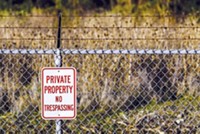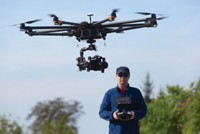Advertisement
Grab your lab coat. Let's get started
Welcome!
Welcome!
Create an account below to get 6 C&EN articles per month, receive newsletters and more - all free.
It seems this is your first time logging in online. Please enter the following information to continue.
As an ACS member you automatically get access to this site. All we need is few more details to create your reading experience.
Not you? Sign in with a different account.
Not you? Sign in with a different account.
ERROR 1
ERROR 1
ERROR 2
ERROR 2
ERROR 2
ERROR 2
ERROR 2
Password and Confirm password must match.
If you have an ACS member number, please enter it here so we can link this account to your membership. (optional)
ERROR 2
ACS values your privacy. By submitting your information, you are gaining access to C&EN and subscribing to our weekly newsletter. We use the information you provide to make your reading experience better, and we will never sell your data to third party members.
Safety
U.S. Congress clears the way for limits on drone flights near chemical plants and refineries
Industry is concerned about potential accidents as well as espionage
by Glenn Hess
July 19, 2016
| A version of this story appeared in
Volume 94, Issue 30

The Senate gave final congressional approval on July 13 to bipartisan legislation that paves the way for restrictions on the operation of drones near chemical plants, oil refineries, and other “critical infrastructure” facilities.
The legislation would require the Federal Aviation Administration (FAA) to establish procedures for chemical plants and refineries, as well as for energy production, transmission, and distribution facilities, to petition the agency to limit or ban operation of unmanned aircraft close to a facility.
The provision is included in a bill (H.R. 636) that authorizes FAA programs at current funding levels through September 2017. The House of Representatives approved the measure on July 11, and the Senate passed the legislation by a vote of 90-4 on July 13. President Barack Obama signed the bill into law on July 15.
Drones, unmanned aircraft flown remotely, have surged in recreational popularity. This has raised concerns that a drone could accidentally crash into an industrial facility, hit power lines, or be used by a terrorist to surveil potential targets.
Another worry is the threat of industrial espionage through aerial photography. Industry’s anxiety is focused on the possibility that “enterprising individuals will take aerial photos at these sites and try to sell them to competitors,” says John J. Durkay, legal counsel for the International Safety Training Council, which trains contractors and employees at chemical and refining plants in southeastern Texas.
“Drones photographing units can compromise facility trade secrets.” Durkay tells C&EN.
The American Chemistry Council, which represents major U.S. chemical companies, urged Congress to restrict drone use around the industry’s facilities.




Join the conversation
Contact the reporter
Submit a Letter to the Editor for publication
Engage with us on Twitter